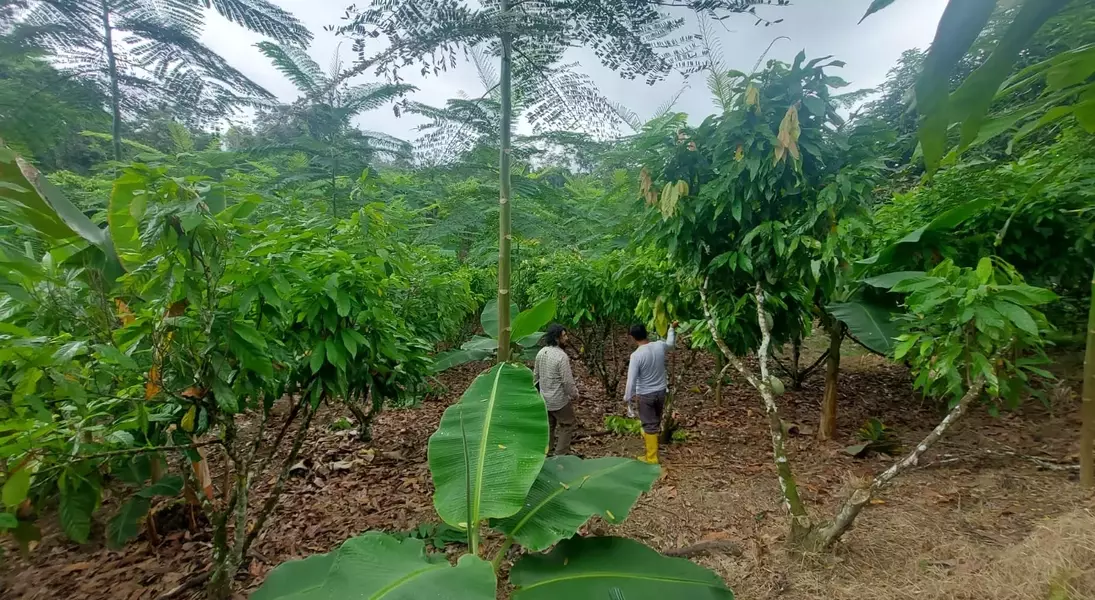
In a collaborative effort, OFI, Rikolto, and the German Development Agency GIZ have launched an innovative project aimed at supporting Ecuadorian cocoa farmers in adapting to climate change. This initiative, funded by the German Federal Ministry for Economic Cooperation and Development (BMZ), seeks to mitigate the adverse effects of climate change on cocoa production, which is crucial for the livelihoods of approximately 1.7 million Ecuadorians. The project focuses on training 2,800 farmers in sustainable agricultural practices, promoting agroforestry, and enhancing cocoa productivity. By integrating these methods, the consortium aims to create resilient farming communities and contribute to global sustainability efforts.
A Comprehensive Approach to Sustainable Cocoa Farming
In the lush landscapes of Ecuador, a groundbreaking initiative has taken root, aiming to transform the future of cocoa farming. During this pivotal period, the partnership between OFI, Rikolto, and GIZ has embarked on a mission to introduce low-carbon agriculture practices among local cocoa producers. The project, initiated under the auspices of the BMZ, recognizes the critical role that cocoa plays in the economic stability of over 1.7 million Ecuadorians, many of whom rely heavily on this crop for their livelihood.
The project's core strategy involves equipping 2,800 farmers with advanced knowledge and skills in 'climate-smart' agriculture. Through a series of 600 personalized coaching sessions, known as 'field schools,' participants will learn how to integrate sustainable practices into their existing farming methods. At least 20% of these farmers will be women, ensuring gender inclusivity in the program. Agroforestry, a regenerative farming technique, will be a cornerstone of the training, allowing cocoa to thrive alongside other plant species. This approach not only boosts cocoa yields but also diversifies income streams while promoting environmental benefits such as carbon sequestration and biodiversity enhancement.
To further support the initiative, the project will cultivate 40,000 rare and native Nacional cocoa plants within an organic community nursery. These plants will be distributed to participating farmers, contributing to the preservation of this valuable variety. Additionally, OFI’s AtSource sustainability management system will collect valuable insights from the project, enabling the sharing of best practices with national authorities to inform Ecuador's climate policy.
Paula Andrea Rueda Peña, Sustainability Manager at OFI Ecuador, emphasized the importance of this approach: "By adopting low-carbon agriculture, we are empowering smallholder farmers to innovate and enhance their farm management, ultimately boosting cocoa productivity and helping them achieve a living income."
Ralf Buss, Project Manager at GIZ AgriChains Ecuador, highlighted the significance of collaboration: "Addressing global challenges like climate change and biodiversity loss requires the involvement of multiple sectors. Strategic alliances between public and private entities are essential for developing and implementing innovative projects that promote low-emission agriculture and improve climate resilience in food systems."
This project represents a significant step towards creating a more sustainable and resilient cocoa supply chain, benefiting both Ecuadorian farmers and the global environment.
Inspiring Change and Building Resilience
From a journalist's perspective, this project underscores the power of collaboration and innovation in addressing global challenges. By bringing together diverse stakeholders—government agencies, NGOs, and private sector companies—the initiative demonstrates how collective action can lead to meaningful change. The emphasis on training and education empowers farmers to adapt to changing conditions, ensuring the long-term viability of their livelihoods. Moreover, the focus on agroforestry and sustainable practices highlights the potential for agriculture to play a positive role in combating climate change. This project serves as a model for future initiatives, showing that with the right tools and support, even the most vulnerable communities can build resilience and thrive in a rapidly changing world.
